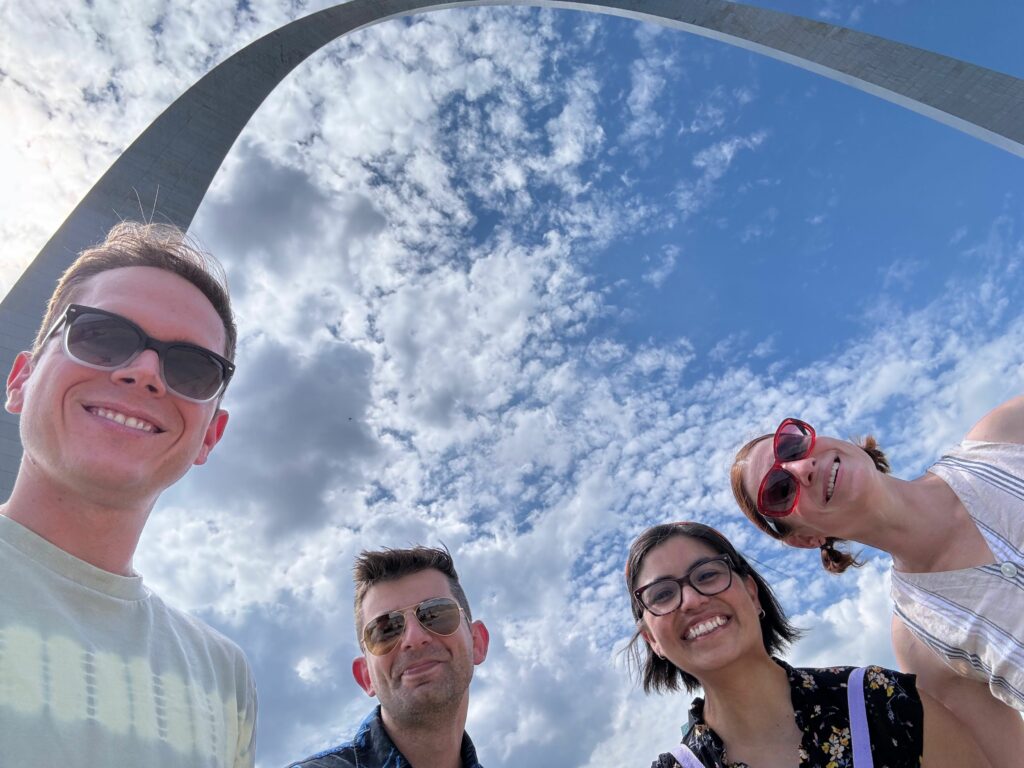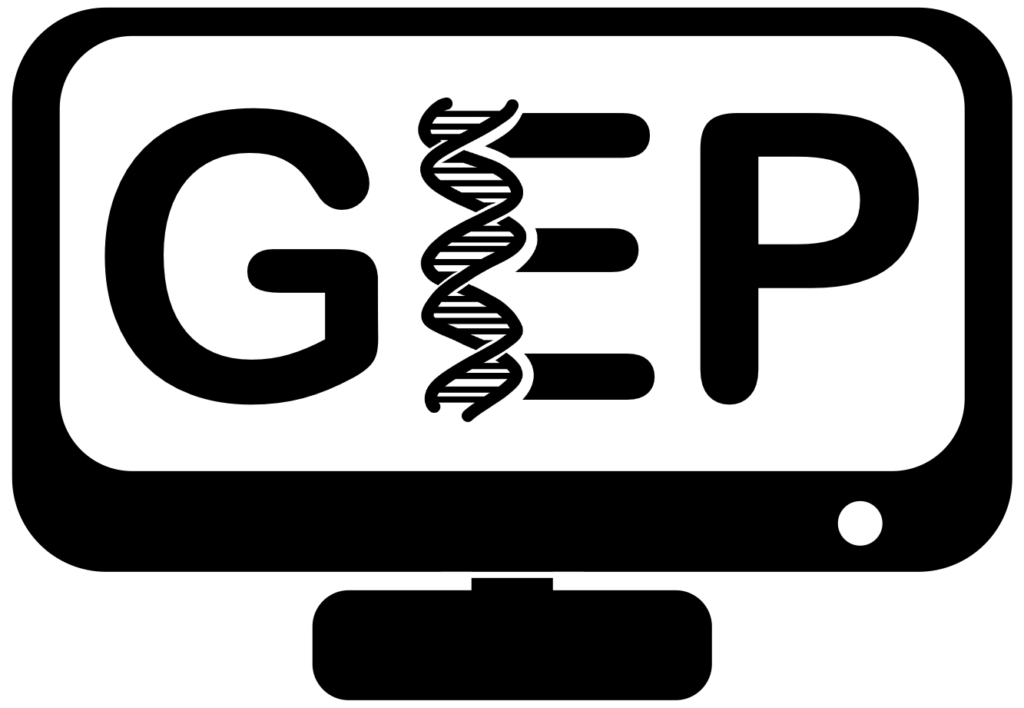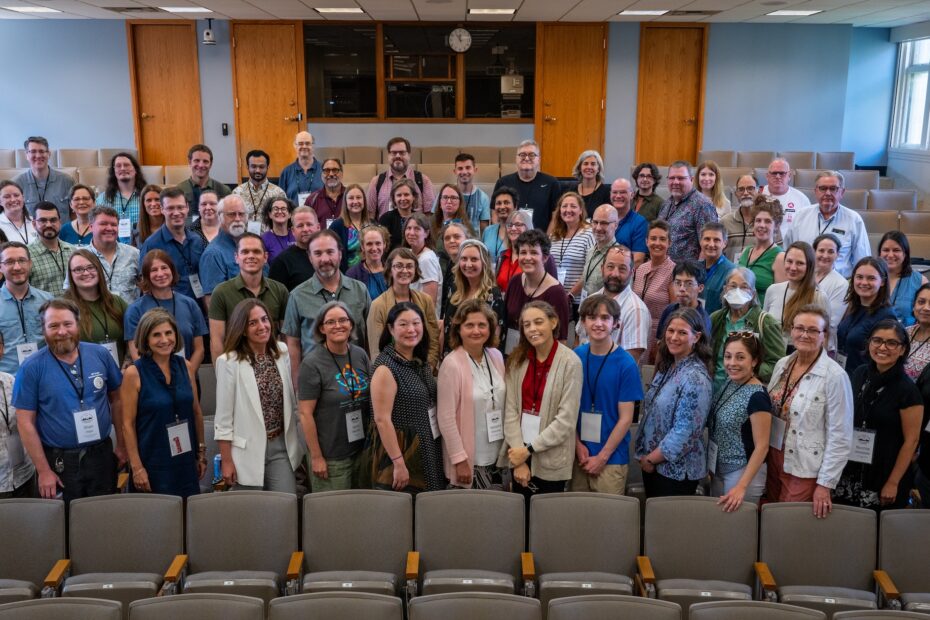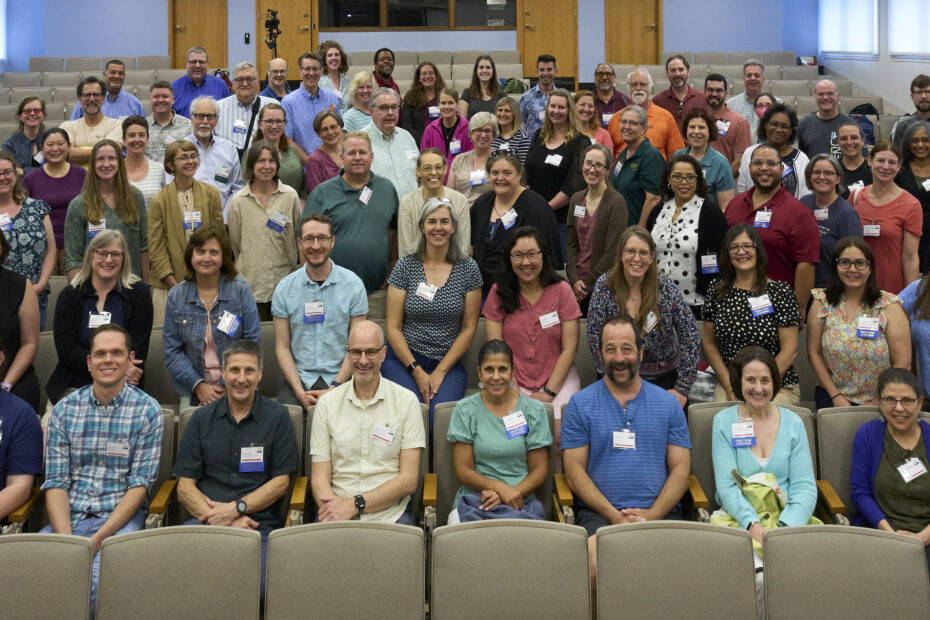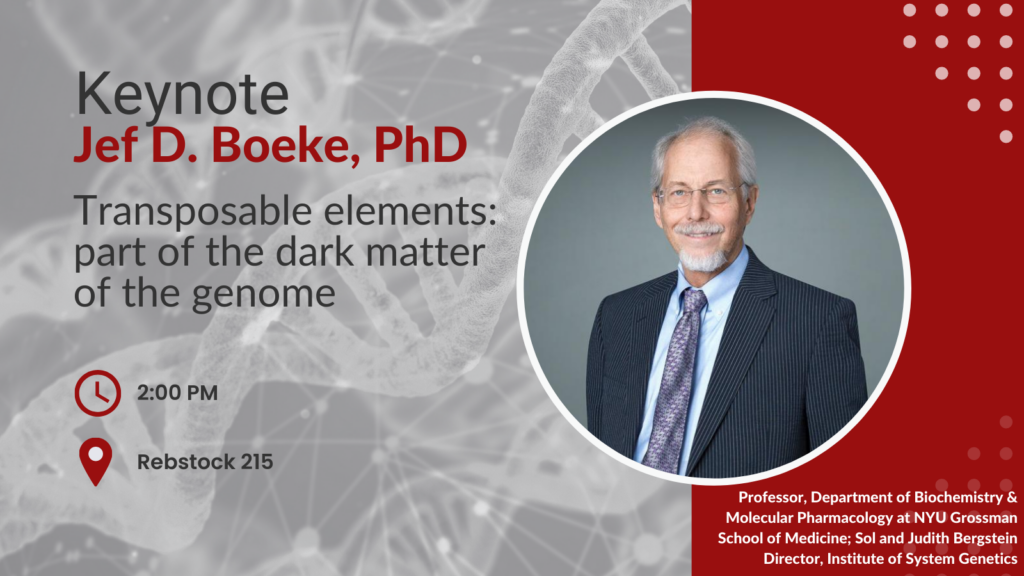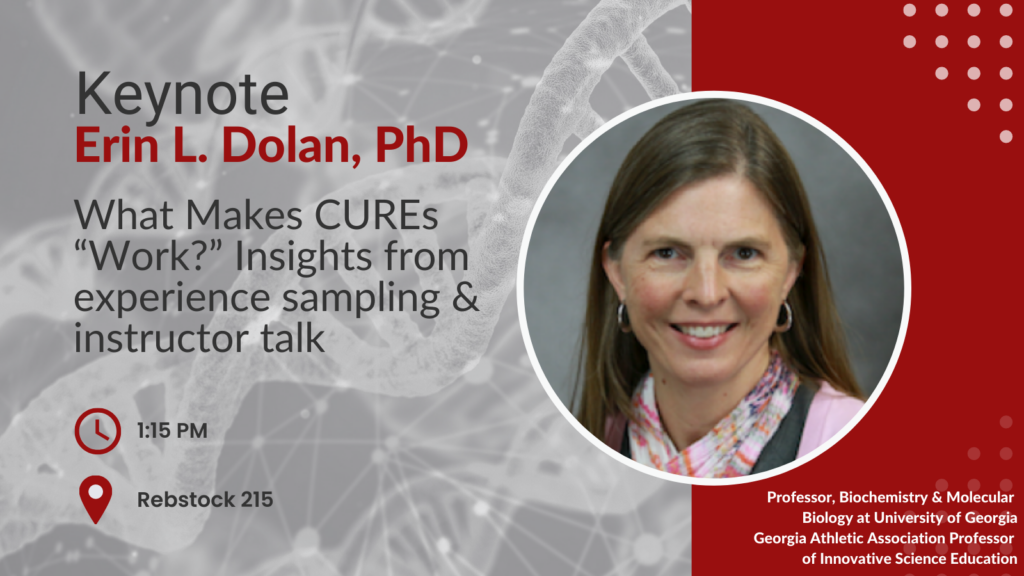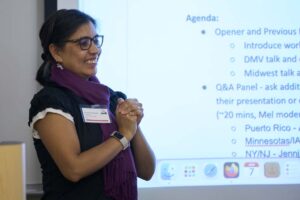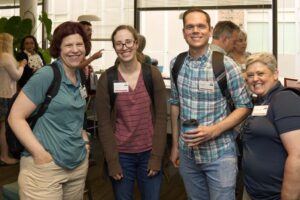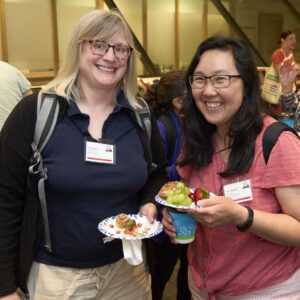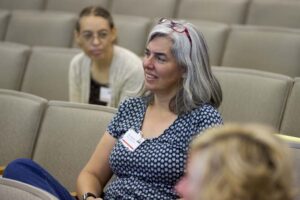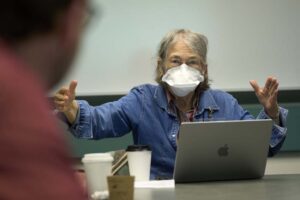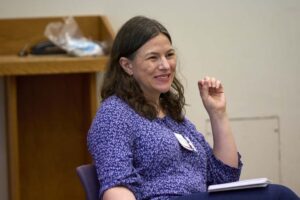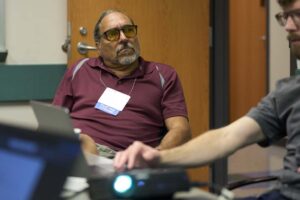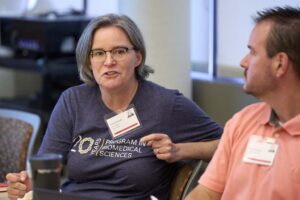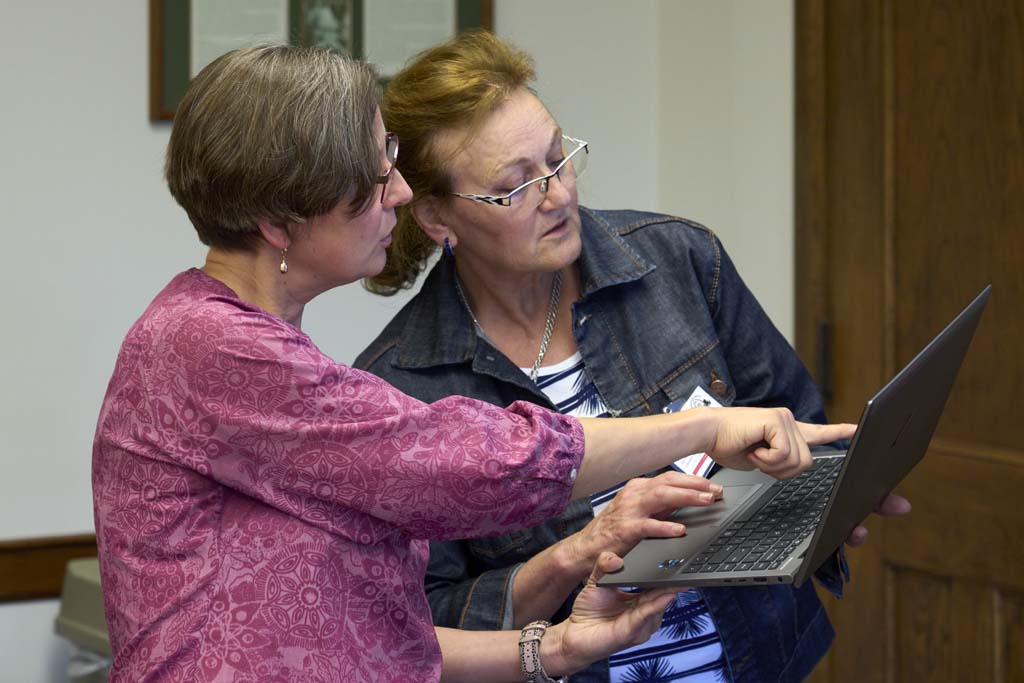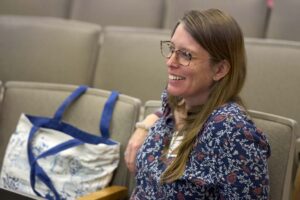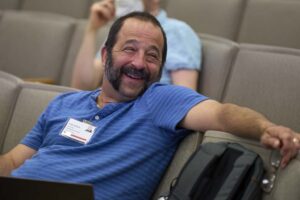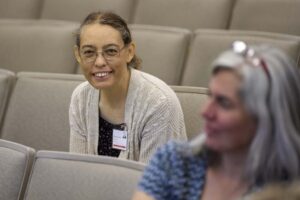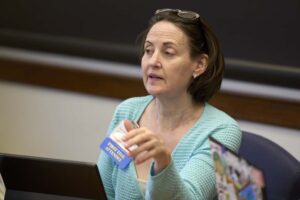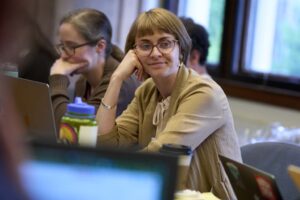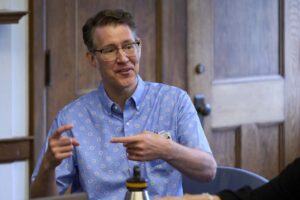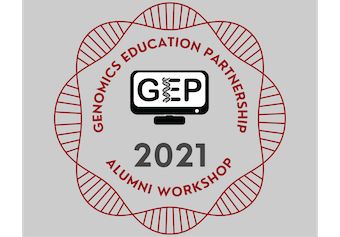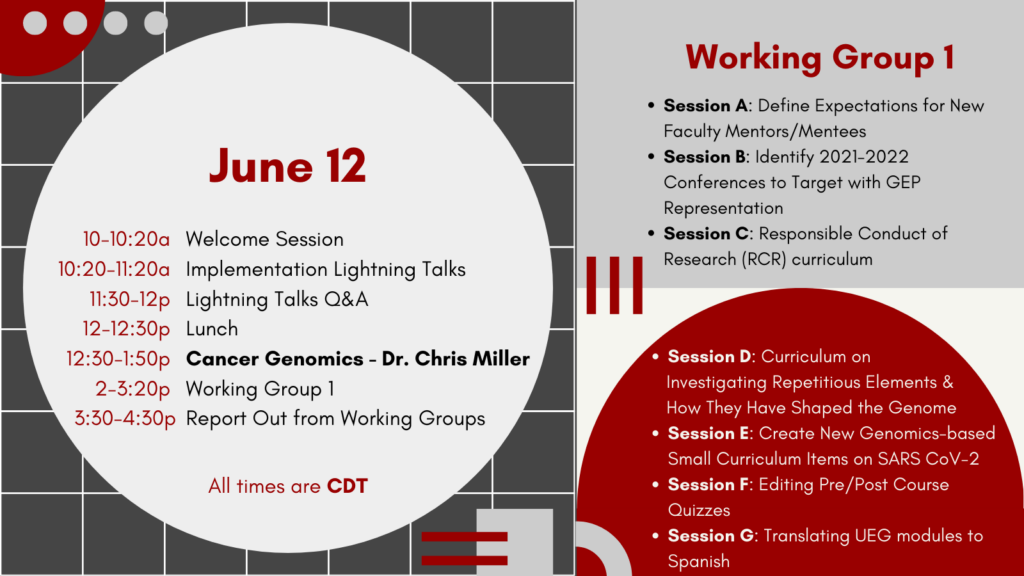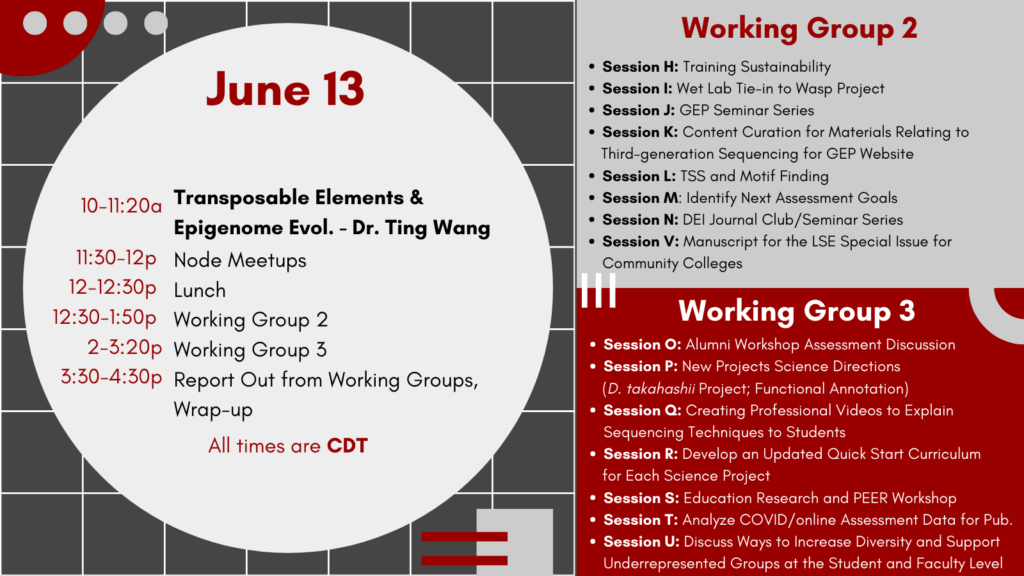2024 National GEP Faculty Workshop
A total of 75 participants (64 GEP faculty members, three staff, three student reconcilers, one student Virtual TA, and four collaborators) participated in the 2024 National GEP Faculty Workshop held at Washington University in St. Louis.
The national workshop allowed GEP members to gather to share their experiences teaching GEP materials, develop new curriculum, work on potential scientific and education research publications, identify future funding avenues, and undergo professional development via keynotes, a lecture, and working groups.
Steering Committee Working Day
The Steering Committee arrived on June 17 to hold a working day packed with recaps from the prior academic year and the status of GEP grants, identifying future funding mechanisms, Committee-specific planning sessions, and opportunities for informal networking.
Faculty Workshop
The official workshop kicked off on the evening of June 18 and ran through the midday of June 21. Dr. Emma Farley from UC San Diego and Dr. Mica B. Estrada from UC San Francisco provided keynote talks. There were two sessions of implementation lightning talks and Working Groups. GEP staff member, Katie Sandlin, provided a one-hour lecture on “Long-read Sequencing Technology.” GEP External Evaluator, Dr. Christine Pribbenow (Wisconsin Center for Education Research), provided an Implicit Bias Training called Fair Play.
Science Keynote by Dr. Emma Farley - Affinity-optimizing enhancer variants disrupt development
Enhancers control the location and timing of gene expression and harbor the majority of variants associated with phenotypic variation and disease. As such, enhancers provide the instructions for tissue-specific gene expression, development, and cellular integrity. The majority of variants associated with phenotypic variation, evolutionary adaptations, and disease are thought to lie within enhancers. Yet, pinpointing causal enhancer variants from the sea of inert variants is a major challenge. Transcription factors bind to sites within the enhancers to regulate the timing and location of gene expression. Despite decades of study, how enhancers encode tissue-specific activity and the mechanisms by which single nucleotide variants (SNVs) alter phenotypes are poorly understood. I will discuss our work to pinpoint and predict what changes within enhancers lead to phenotypic changes across different species, including the heart of the marine invertebrate Ciona robust and the mouse and human limb. We discover that many enhancers contain suboptimal affinity binding sites (also known as low-affinity sites). Strikingly, we find that single nucleotide changes that increase the affinity of these sites, even slightly, cause organismal-level phenotypes such as extra digits or a second beating heart. Genomic analysis of many enhancers illustrates affinity optimizing SNVs lead to gain of function gene expression across a variety of cell types and enhancers. Our studies illustrate that the prevalence of suboptimal affinity binding sites in enhancers creates a vulnerability within genomes whereby SNVs that optimize affinity, even slightly, can be pathogenic. Searching for affinity-optimizing SNVs within genomes provides a generalizable approach to identify causal variants that underlie enhanceropathies.
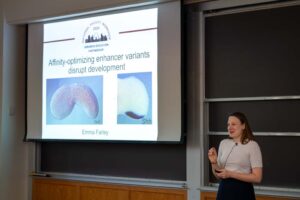
Diversity, Equity, and Inclusion Keynote by Dr. Mica B. Estrada – Creating pathways of kindness and inclusion in STEM education
An ongoing tension exists between breaking apart and coming together that happens at every level of the biosphere, including among people. STEM education has historically focused on providing knowledge to integrate people into an academic community. Data shows that not all people became equally integrated into this academic community. With all this in mind, Dr. Estrada will describe findings from her research program in which she longitudinally tracks and examines what types of mentorship, experiences and supports are more likely to result in students integrating into their professional fields and persisting in STEM career pathways. She will describe findings regarding persons historically excluded because of ethnicity and race. Further, she will talk about how institutional policies and climate that provide kindness cues that affirm social inclusion may impact the integration experience for historically underrepresented college students, faculty and administrators in STEM training and professional settings.
Extra Working Day
All GEP faculty members were welcome to stay for an extra Committee Working Day. The day began with a Field Trip to one of many locations across the city of St. Louis. The only requirement was willingness to contribute to the project for one of the Working Groups organized by the GEP Committees. The extra Committee Working Day ran midday June 21 through midday June 22.
